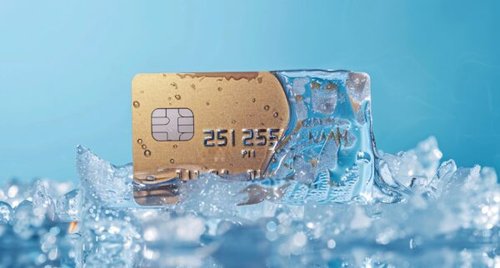A charge card, a specific kind of credit card, can help you build credit. But before you apply for a charge card, make sure you understand how this type of card works and how it can affect your credit.
What is a charge card?
A charge card is similar to a traditional credit card, but they aren’t identical. In other words, they’re siblings but not twins.
With a charge card, you must pay the entire balance when you receive your monthly statement. This means you can’t carry the balance from one month to the next.
As a result, you don’t pay interest on charge card balances. But if you don’t pay the entire balance each month, you might be hit with fees and penalties.
How does a charge card differ from a credit card?
Here are some of the key differences between a charge card and credit card:
- A traditional credit card generally lets you roll over a balance from one month to the next on your purchases and other transactions, whereas a charge card does not.
- Typically, you must pay interest on the balance of a traditional credit card, while there’s no interest for a charge card balance.
- You usually must make a minimum monthly payment toward reducing the balance on a traditional credit card. That’s not the case with a charge card.
- A traditional credit card comes with a credit limit, while a charge card normally has no preset spending limit.
- Traditional credit cards are more common than charge cards. However, both are generally accepted as payment methods.
Do charge cards build credit?
Yes, charge cards can help you build credit. In fact, charge cards can be just as effective as traditional credit cards in helping you build credit, according to myFICO, the consumer division of the company that generates FICO credit scores.
Charge cards contribute to building your credit because they affect most of the factors used to calculate your credit score. These factors are:
- Payment history
- Length of credit history
- Credit mix
- New credit
Aside from helping you build credit, charge cards may offer rewards similar to those offered by regular credit cards.
“If you have already established a good or excellent credit score and are prepared to pay off your balance in full every month, you could benefit from a charge card,” credit card issuer Discover says. “You’ll be able to take advantage of interest-free purchases, as well as any rewards that come with the card.”
How do charge cards affect your credit score?
If you regularly make on-time payments for a charge card, it can lift your credit score. But if you make late payments or skip payments, it could harm your credit score.
Payment history makes up 35% of the widely used FICO credit score and 40% of the competing VantageScore 3.0.
Issuers of charge cards generally report payment activity to the major credit bureaus. This information then appears on your credit report. Positive payment activity can benefit your credit score, but a late payment might bring it down. A late payment can stay on your credit report for up to seven years.
➤ LEARN MORE:How to dispute and fix credit report errors
It’s worth noting that if you apply for a charge card or traditional credit card, the card issuer usually will review your credit report. This “hard inquiry” will show up on your credit report but should cause only a small, temporary dip in your credit score. A hard inquiry remains on your credit report for up to two years.
Do charge cards affect credit utilization?
Because a charge card generally has no credit limit, it’s typically not factored into your credit utilization ratio. But because a traditional credit card does come with a credit limit, it is part of your credit utilization ratio.
Your credit utilization ratio represents 30% of your FICO credit score and 20% of your VantageScore 3.0.
Normally shown as a percentage, the ratio consists of the amount of revolving credit you’re using compared with the amount of revolving credit that’s available to you.
Revolving credit, including traditional credit cards, allows you to borrow up to a certain credit limit, pay back what you owe over time and continue borrowing as long as enough credit is available.
Does closing a charge card hurt credit?
Yes, closing a charge card can hurt your credit score, though the impact can vary. Here’s why:
- Credit utilization: While charge cards don’t have a credit limit that factors into your credit utilization ratio in the same way as a traditional credit card, closing one can still indirectly affect it. If you have other credit cards, the closure reduces your overall available credit, potentially increasing your credit utilization ratio, which can negatively impact your score.
- Length of credit history: If the charge card is one of your older accounts, closing it can reduce the average age of your credit accounts, which is a factor in your credit score.
- Credit mix: Closing a charge card could slightly reduce the diversity of your credit mix, although this is usually a less significant factor.
The extent to which your score is affected depends on your overall credit profile. Closing a very old card or one that contributes significantly to your available credit (if you have other credit cards) might have a more noticeable impact.
How to choose between a charge card and a credit card
If you can keep your spending under control and can afford to make full monthly payments, a charge card may be worth looking at. One advantage of responsibly using a charge card is that you can avoid paying interest. But if you fail to make the required monthly payments, you may face fees and penalties.
A traditional credit card might be a better choice if controlling your spending is an issue and making full monthly payments would strain your budget. Keep in mind that some traditional credit cards offer special periods when you can make purchases at a 0% APR (annual percentage rate).
Consider, too, that charge cards generally come with annual fees, while many traditional credit cards often don’t charge annual fees.
Gary Herman, president of nonprofit credit counseling agency Consolidated Credit, recommends on the organization’s website that a first-time cardholder start with a traditional credit card and then — “once you get comfortable using credit and improve your credit score” — consider whether to apply for a charge card.


